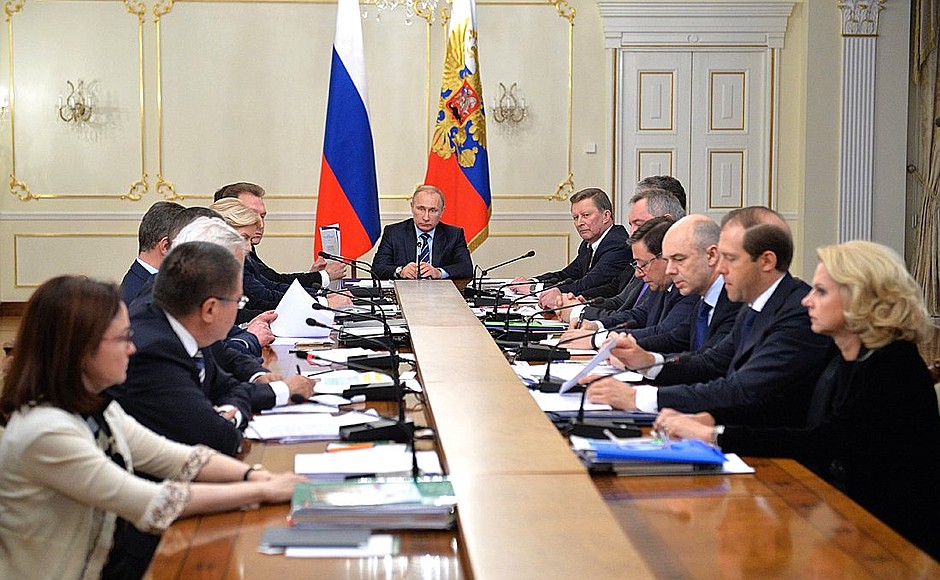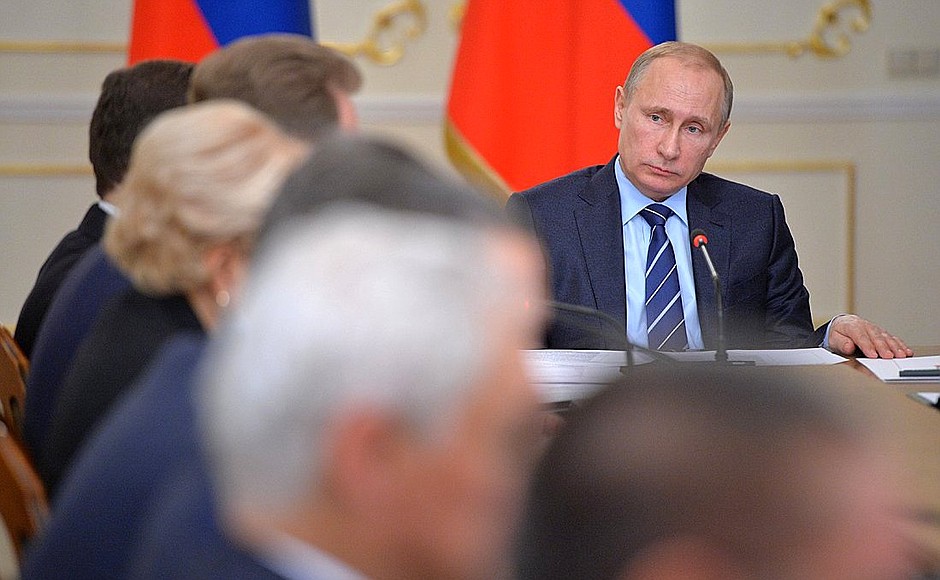Speech at meeting with Government members
President of Russia Vladimir Putin: Colleagues,
We have met several times to discuss current economic policy and talk about the medium-term perspective.
I suppose I do not need to describe what is happening in global markets, in the global economy, and how it affects Russia. I will not talk about the entire range of causes; they are all well-known. We must think about what we need to do, how to build our policy. Naturally, we should and will proceed following the logic of the market economy; we will rely exclusively on these considerations.
But first of all, whatever we do and whatever plans we make, we must certainly ensure the fulfilment of our social commitments. We know that this is all entirely doable; there are no doubts that we will do this.
At the same time, in fulfilling our social objectives, we must also talk about what we will do in corresponding sectors of the economy, in the economy overall – today and in the future, considering different development scenarios.
<…>
Before we move on to discussing specific issues, I want to remind you that this is not the first time we are facing this kind of situation; we already faced it once in 2008–2009. Then, too, the crisis was caused by external factors. As you recall, it began with the collapse of the US mortgage system and later affected other nations, including Russia. And once again, today, one of the main reasons behind the economic situation is the state of foreign markets – in this case, raw materials markets – which affects us seriously.
If we are to talk about the so-called sanctions effect, I want to point out that during the 2008 crisis, I don’t recall anyone wishing to extend loans to Russian financial institutions; on the contrary, we had so-called margin calls. We were relying solely on our own means to resolve these problems, first and foremost relying on our development institutions and the reserves we had. In that respect, little has changed.
Unfortunately, the structure of the Russian economy has changed little as well, but the external limitations we are up against today may finally push us toward working more vigorously to change this structure.
Moreover, we have already ascertained that despite the seeming stability of international economic rules, they are actually subject to erosion under pressure from political factors. As you know, we were even somewhat naive, believing that such fundamentals of the global economy are inviolable. This, too, has served as a lesson to us.
In reality, this should push us toward increasing our economic sovereignty, remaining – as we have stressed many times – an integral, natural, organic part of the global economy.
Based on all these parameters, let’s discuss all the suggestions you have prepared in the past six weeks.
<…>

